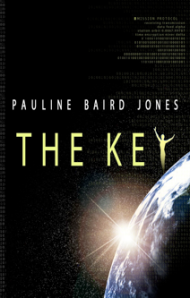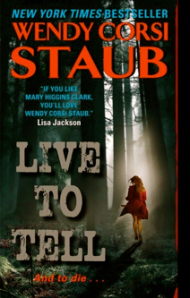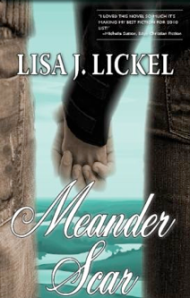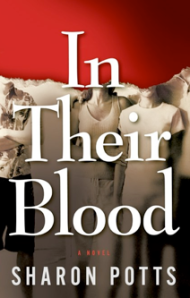Making Waves by Nicole O’Dell
December 20, 2010 Leave a comment
Barbour Publishing
ISBN: 978-1602608450
Paperback
$7.97
Copyright © 2010 by Nicole O’Dell
Chapter 1
A Lonely Portrait
The picture had been shot only six weeks before; but the edges were already tattered, and fingerprints smudged the image. Kate peeled it from the scrapbook page for what seemed like the hundredth time. She leaned back to lie on the floor and raised the picture above her head in one fluid motion—the rotating ceiling fan made the picture wiggle.
Three generations of Walker women stared back at her. Her silver-haired grandma sat elegantly, unsmiling, in a high-backed brocade chair; and her mom stood just behind, grinning. Kate’s sister, Julia, looked regal with her ivory-lace wedding dress fanned out around the group like a moat around a castle. She wore her brown, velvety hair swept up in an elegant clip, revealing her long, graceful neck. Kate sat at her mom’s feet just outside the moat, her legs twisted to the side as she tried to remain graceful, careful not to touch the ethereal hem of her sister’s garment.
Julia. She drove Kate crazy most of the time, but Kate didn’t know how much she counted on her big sis until she was gone. She didn’t live too far away—about fifteen minutes by car—but far enough so they usually only saw each other on weekends when Julia had free time, which, for a young newlywed, was pretty rare.
Kate heaved herself up with a sigh and returned to her scrapbook. She flipped one page back to what she had been working on the day before. Her gaze locked on an image of her with her best friend, Olivia. Pacific Ocean waves lapped the beach behind where they stood together, laughing at a private joke forever frozen in the photo. Kate smiled because the picture showed just how little they had in common. Kate stood tall and slender, her shape almost boyish. She easily leaned her arm down across Olivia’s much-lower shoulders. Olivia’s bright blue eyes contrasted Kate’s sea green. Olivia had a deep tan, but an equal coating of sunscreen and freckles covered Kate from head to toe.
Kate wiped the tear from her cheek. Missing Julia hurt, but missing Olivia was a different story entirely. Forced to leave Oregon, where she’d lived all her life, Olivia had to move all the way to Chicago to chase her dad’s promotion. It seemed so sophisticated—and so very, very far away.
Of course, they had promised to stay best friends forever. But Kate wasn’t that naive. Only a sophomore, Olivia would meet other people, develop other interests, and move on with her life. Kate would just be stuck in Bethany, Oregon, with the same people she’d gone to school with since kindergarten. Everything stayed the same for Kate, except now she had to do it all alone.
Enough! Kate slammed the scrapbook closed. She really needed to stop the moping and do something with herself. Her mom wouldn’t be home from her job for a few hours, so Kate decided to go for a swim. There wouldn’t be many more opportunities as the summer drew to a close. The past few nights, Kate noticed that the night air held a hint of the approaching fall, which meant cooler water, too.
It’s now or never. She pulled on her swimsuit, grabbed a towel, and headed off on the half-mile walk to the nearby lakefront beach. A nice long swim would do her good. Oops. She ran back into her bedroom to grab a sweatshirt for the walk home.
The lifeguards waved to Kate. She nodded a greeting as she tied back her unruly hair then waded out into Lake Blue. She hesitated as the waves came in above knee level. She shivered at the first touch of the water on her thighs, already colder than a week ago. She shivered once more and, with resolve, gave herself a silent one, two, three, GO and took the plunge.
Pulling through the small waves refreshed her. Each time she turned her head to the side to breathe, she felt cleansed. With her head underwater, she didn’t notice that she had no one to talk to or that no one wanted to talk to her. It no longer seemed odd to be alone. She felt normal. Just God and her—everything was best that way. So she stayed underwater for as long as she could. She swam. And prayed. And swam. Ahh, freedom. The cares of life a distant memory, buried at the bottom of the sea.
She went out about a mile along the shore and then another mile back, and stood to wade into the beach. As her head popped above the water and the fresh air hit her face, the world once again seemed as huge as the mountains in the distance, but she felt stronger. Nothing had really changed about her circumstances, but swimming always had that strengthening effect on her. Kate just wished she could swim all the time.
Suddenly an idea struck her. Why couldn’t she swim all year around? She could join the swim team. She had probably logged around two hundred and fifty hours in the water this summer alone. It would sure be different swimming for a reason other than pure pleasure. But maybe if she felt like it had a purpose, Kate could love it as much as the lake.
There was only one way to find out.
She toweled herself dry and slipped on her flip-flops, then trudged through the sand toward the road. She hurried toward home hoping she’d have time to make a quick dinner to share with Mom when she got home from work. She kicked at the pebbles on the road and thought of her mom. Four years ago, she had taken a job after Kate’s dad passed away. They needed the money. She didn’t like being gone so much, and Kate knew she struggled with loneliness, too. She could hear Mom crying in her bed some nights. But now, it was time—they both desperately needed a change.
*****
“Mom, I think I want to join the swim team at school. What do you think?”
“Really?” Mom dipped the corner of her grilled-cheese sandwich into her tomato soup and took a bite, leaning over her plate so she wouldn’t drip on her business suit. She looked out over their backyard, seemingly lost in thought.
Blinking rapidly as though to reset her thoughts, she blotted her lips with her napkin and said, “Well, I think a sport is a great thing; and you’re a fantastic swimmer. I just don’t want it to affect your grades or keep you from participating in other important things like the church musical—you do that every year.” She got stern. “You promised me when you took a year off from choir that you’d still participate in the musical. When does swimming start?”
“I just checked. Tryouts are in two weeks. Practices would start the second week of September. And, Mom, you don’t have to worry. I’ll stay on top of everything.” Kate tried to look convincing.
“Well, what kind of schedule are we talking about exactly?” Mom narrowed her eyes, the skepticism evident.
“Practice would be every day after school until five-thirty. There’s a sports bus I can catch, which would have me home around six-fifteen. On Saturdays, there’s either a meet or a practice. If, by some miracle, I make the varsity team, I’d also have a ninety-minute, before-school practice.”
“Wow, Kate. That’s quite a commitment. Are you sure this is something you want to do? After your swim schedule, church activities, and homework, you won’t have time for anything else.”
“What else is there, Mom?” Kate dropped her uneaten sandwich onto her plate. “If I don’t go swimming, I just sit around here by myself all afternoon.” She gestured at the house. “I don’t even crack my books until well into the evening anyway. I might as well do something constructive and fun. Plus, maybe I’ll meet some new people.” She pleaded for understanding.
Mom closed her eyes for a moment and then, without opening them just yet, she reached out and touched the top of Kate’s hand. She patted it, then looked at her and nodded slowly, gently squeezing. “I know it’s been a rough four years for you, honey. You’ve had to deal with a lot of loss. Seems we can’t catch a break since your father died.”
After a moment or two, Mom shook her head as if to clear her thoughts. “You know what? I think it’s a great idea. You should go for it. And there’s no need to ride the sports bus home. I’ll just swing by the school on my way home from work to pick you up.”
Kate’s mood instantly brightened. “That sounds great, Mom. Thanks! Now I just have to make the team.”
*****
“Swimmers, take your mark!” The coach shouted from the side of the pool, her whistle at her mouth, ready to blow.
Kate, already poised atop the starting block, leaned down and grabbed the edge just like she had been taught in the training session. Being careful not to fall in, she waited for the next cue.
“Get set.”
She pulled herself a little closer to the edge, arms bent, pulling forward on the edge of the block but pushing back with her feet, like a loaded spring.
“Go!” The whistle shrilled.
Kate sliced into the water with ease, then used her powerful kick to propel her as she angled her way toward the surface, careful not to come up too fast and break her speed. The instant her head broke the surface, she pulled her right arm from behind her and began to swim.
She used the same long, strong stroke she used in the lake. The still water felt lighter and crisper than the salty waves of the ocean. It was strange on her skin, but a welcome change. She felt as though she were flying through billowy clouds on a sunny day. Kate swam fast and she knew it.
Reaching the end of the lane, she grabbed hold of the edge and turned herself around to go back. She’d have to learn how to do a flip turn, but the coach had said that she’d have plenty of time for that. The turn cost her a few precious seconds, but she still kept the lead. Nearing the end of the lap, she tucked her head under the water and gave a final thrust toward the touch pad that controlled the timer.
She finished her tryout, removed her swim cap and goggles, then hoisted herself onto the pool deck before the next swimmer arrived back at the starting block.
Coach Thompson walked over. “Great job, um, Kate, is it?” she asked, checking her clipboard and pulling a pencil from her short, curly brown hair. She was shorter than Kate, but exuded strength and power.
“Yeah, Kate Walker.” She wrapped a towel around her dripping body.
“Where’ve you been? Why didn’t you swim last year? And how did you learn to swim like that?”
“I have always loved to swim, and I just do it for myself. I swim in the lake a lot. And I mean a lot.” Kate shook her head to the side to release the water from her ear.
“I can tell.” The coach nodded and smiled. “Come to practice on Monday. I want to play with some ideas before we make any decisions about team placement. Okay?”
“So, does that mean I’m not on the team yet?” Kate’s shoulders dropped.
“Oh no! You have a place on the team. It’s just where that I have to figure out. Your speed and raw skill is good enough for varsity. But your start and turns need work. So we’ll just see if we can make enough of a dent in those to have you swim varsity. Deal?”
“Deal! I’ll be here.” Kate sailed away as quickly as she could on the slippery pool deck to the locker room. She couldn’t wait to give her mom the exciting news.
Brittany and Pam, two juniors, had just finished rinsing off in the showers. Pam turned off the faucet, and nodded toward the pool, “Nice swim today.”
“Thanks.” Kate’s body clenched in anticipation of a conflict.
“I’m sure you’ll be swimming varsity,” Pam said with authority.
“You’ll be coach’s new prodigy, I’m sure,” Brittany agreed.
“Oh, I don’t know about that. I won’t get in anyone’s way,” Kate spoke quickly.
“No, Kate. From the way things look, we’ll be in your way. Coach is going to have you flying before you know it. It’s good to have you on the team.” They both nodded and smiled warmly.
“Thanks a lot.” Kate returned their smiles, relieved that they were just being friendly.
While she finished up her shower, Kate heard her cell phone ring inside her gym bag. She tucked her towel around her body so she could dig for her phone. Olivia!
“Hey, Liv!”
“Hey, Katie-bug. How’s everything?” Olivia sounded a little down.
“Well, I just got finished with swim-team tryouts, and I made the team. That’s about all that’s new here.” Kate’s voice trailed off. She wished Olivia could be there with her.
“Of course you did! You’re an incredible swimmer. I can’t believe you never joined before this. Why didn’t you, by the way?”
“Oh, I don’t know. Life, I guess. It always seemed like too much time and I thought I preferred swimming for myself. But I’m getting a big rush out of this team-competition thing. We’ll see how it goes as the season moves on, though. But, hey,” she hesitated, not wanting to let her friend down, “is it okay if I call you back later tonight? Mom’s picking me up in a few minutes and we’re going out to eat. And,” Kate laughed, “I’m standing here in nothing but a towel.”
Olivia laughed. “Okay, we can’t have that. Call me later.”
Kate slid her phone closed and dropped it back into her bag. Sadly, she realized that she’d have less and less time for talking on the phone now. She shook her head to clear the negative thoughts. She took her long, damp curls into her hand, wound them together into a knot and secured the entire bundle with a clip, swiped on some lip gloss and applied a touch of mascara to her too-light lashes. Satisfied, Kate grabbed her gym bag and her heavy school bag, jogged out to her mom’s waiting red, four-door sedan and slipped into the passenger seat.
“So, how’d you do? Did you qualify for a college scholarship yet?” Her eyes sparkled as the car door swung shut.
Kate buckled her seat belt and chuckled, hoping her mom was joking. “You never know, Mom. You never know. But for now, let’s eat! I’m starving.” ❖
________________________________
Buy Nicole’s Magna at:
Amazon
Barnes & Noble
Christianbooks.com
——————————————————
Nicole O’Dell, mom of six, including toddler triplets, youth leader, speaker and author of the Scenarios for Girlsinteractive fiction series.
Website: http://www.nicoleodell.com
Sign up for Nicole’s newsletter: http://ymlp.com/signup.php?id=gejjymsgmgj
————————————————-



















You must be logged in to post a comment.